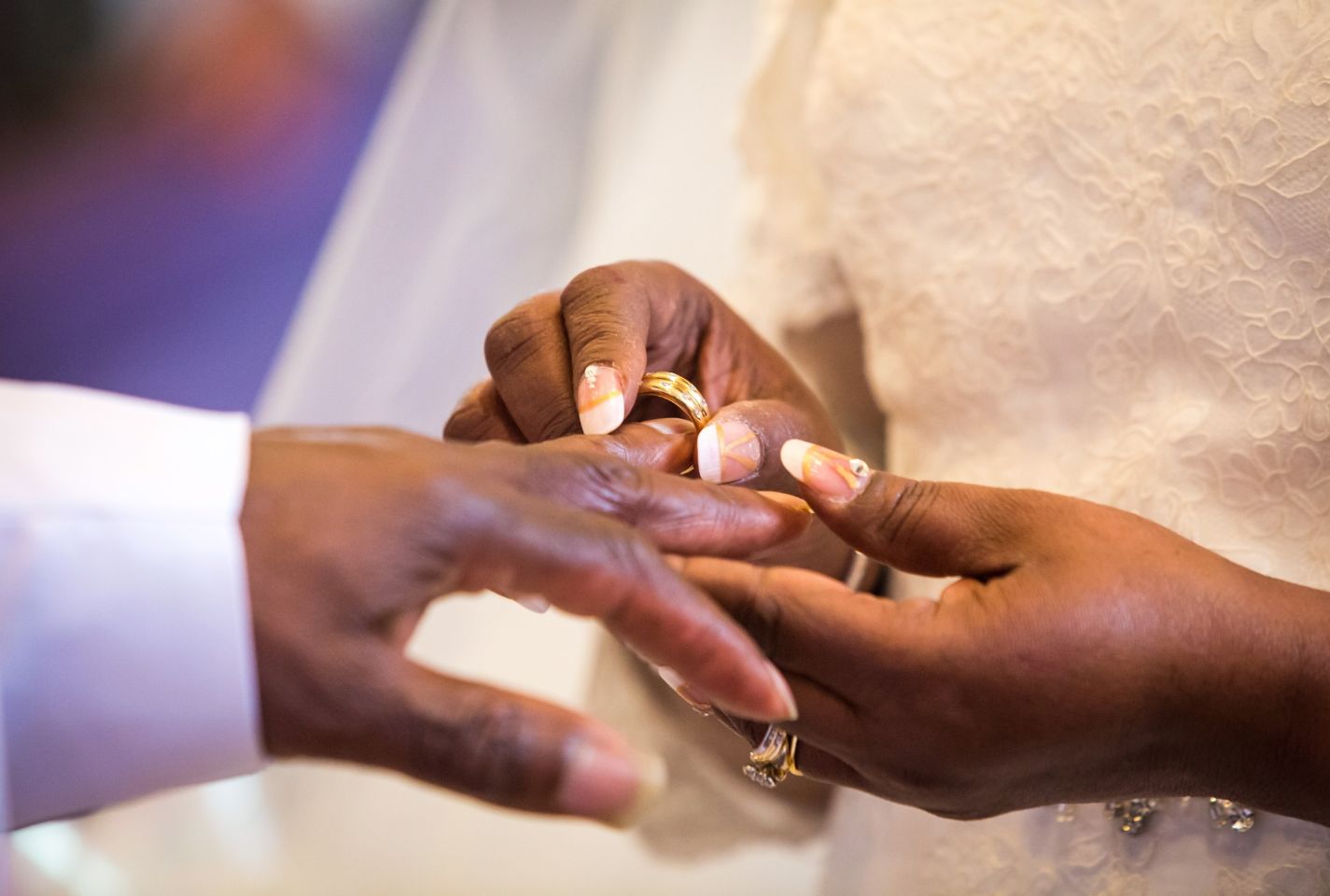Romance Scams: When “Love at First Sight” Is a Carefully Calculated Lie
The message arrives unexpectedly. Someone charming, articulate, and seemingly perfect shows interest in you. They say all the right things. They seem to understand you in ways others haven’t. After years of waiting, disappointment, and prayers, it finally feels like your time has come.
But what if I told you that “answered prayer” might actually be a predator who studied you like a textbook?
As someone who has recently handled an alarming increase in romance scam cases, I need to share what I’m seeing: sophisticated fraudsters are targeting vulnerable women with military precision, and the devastation they leave behind goes far beyond money.
The Anatomy of a Modern Romance Scam
These aren’t the clumsy “Nigerian prince” emails of the past. Today’s romance scammers are patient, intelligent, and disturbingly effective. They don’t just want your money—they want your trust, your body, your dignity, and sometimes even your reputation.
The Perfect Package
They arrive in your life presenting themselves as exactly what you’ve been hoping for. Their social media profiles look legitimate at first glance—photos, posts, friends, check-ins at restaurants and events. Everything appears normal because they’ve invested time in creating a believable digital identity.
The proclamations of love come quickly but feel sincere. They mirror your values, share your interests, and seem to fulfill needs you didn’t realize were so visible. To you, it feels like fate. To them, it’s research paying off.
The Ultimate Goals: More Than Just Money
While financial fraud is common, these scammers have multiple objectives:
Financial exploitation: The most obvious goal. They’ll eventually need money for an emergency, a business opportunity, travel to meet you, or some other carefully crafted crisis.
Sexual exploitation: Some are after intimate access to your body with no intention of commitment. They seduce, take what they want, and disappear.
Immigration fraud: They’re seeking papers, citizenship, or legal status in another country, using marriage as a transaction rather than a commitment.
Professional leverage: They want to exploit your position, connections, or influence for contracts, business deals, or access to opportunities they couldn’t obtain legitimately.
Blackmail material: Perhaps the most sinister—they deliberately collect compromising photos, videos, or information to extort you later.
What appears to be love is actually a business transaction. You’re not a person to them; you’re an opportunity.
The Long Game: Patience as a Weapon
The cases reaching me lately share a disturbing pattern: these scams are executed over months, not days.
Fraudsters understand that trust isn’t instant—it’s built. So they invest time. They check in daily. They remember details about your life. They celebrate your wins and comfort you through losses. They create a routine where their presence becomes normal, expected, and eventually essential.
This patience serves a purpose. By the time they make their real ask—whether it’s money, sex, professional favors, or compromising photos—you’re so emotionally invested that saying no feels like betraying someone you love.
The trust they’ve carefully constructed becomes the very weapon they use against you.
The Blackmail Trap: When Intimacy Becomes Leverage
One of the most devastating tactics involves turning intimate moments into ammunition. Here’s how it works:
The relationship progresses naturally. Video calls become routine. The conversation turns romantic, then sexual. You’re encouraged to express yourself freely, to share your body on camera, to be vulnerable.
What you don’t know: you’re being recorded.
Suddenly, you’re trapped. The person you thought loved you now has explicit content they threaten to send to your family, colleagues, church members, or social media contacts unless you comply with their demands—usually money, but sometimes continued sexual access or other favors.
The shame and fear are paralyzing. Many victims pay repeatedly, hoping it will end, only to find that blackmailers rarely stop once they know you’ll pay.
The Network: It’s Not Just One Person
Modern romance scammers don’t work alone. They operate within networks of fraudsters who help legitimize their lies.
That “sister” who called to vouch for him? Another scammer.
That “colleague” whose LinkedIn profile confirms his job? Part of the operation.
Those “friends” commenting on his posts? Fake accounts managed by the network.
They create an entire ecosystem of verification that’s designed to pass your scrutiny. Phone numbers work. Social media profiles exist. References check out. Everything appears legitimate because they’ve built a complete fabrication, not just a single lie.
This sophistication means traditional verification methods—checking someone’s social media, speaking to their family, confirming their job—are no longer sufficient protections.
The Target Profile: Who Are They Hunting?
These fraudsters don’t randomly choose victims. They have a specific profile they actively seek:
Women in their 30s and above
You’re more likely to be actively seeking marriage, possibly feeling time pressure, and may have experienced disappointment in dating. This creates urgency and vulnerability they can exploit.
Single mothers
Parenting alone is exhausting and isolating. The promise of partnership, co-parenting support, and companionship is especially appealing, making you more willing to overlook red flags.
Financially stable
They need victims who can fund their requests. They’re looking for women with careers, savings, or assets they can systematically drain.
Living abroad or in different cities
Physical distance prevents you from showing up unannounced, verifying their claims in person, or discovering inconsistencies in their story. Distance creates space for deception.
If you fit this profile, you’re not weak or naive—you’re simply who they’ve identified as a lucrative target. Understanding this isn’t about shame; it’s about awareness.
Red Flags: Can You Spot Them When Love Is Involved?
Here’s the challenging truth: red flags exist in every romance scam, but love makes us colorblind.
Watch for these warning signs:
Moving Too Fast
Declarations of love within days or weeks. Talk of marriage before you’ve met in person. Intensity that feels overwhelming but is explained as “connection” or “fate.”
Avoiding In-Person Meetings
There’s always a reason they can’t meet: work commitments, family emergencies, travel complications. Plans are made and repeatedly cancelled.
Vague or Inconsistent Details
Their stories don’t quite add up. Details change. Their timeline has gaps. When questioned, they get defensive or emotional.
Financial Requests
They need money for emergencies, business deals, travel to see you, or family crises. The requests escalate over time.
Isolation Tactics
They discourage you from discussing the relationship with friends or family. They create an “us against the world” dynamic.
Pressure for Intimate Content
They push for explicit photos or video calls, often becoming sulky or manipulative when you hesitate.
Too Perfect
They seem to be exactly what you’ve been praying for—matching your values, interests, and needs with suspicious precision.
Limited Digital Footprint
Despite being on social media, their online history is shallow. Few genuine interactions. Recent account creation dates. Limited photos spanning time.
Refusing Video Calls (or Strategic Use)
They avoid video calls claiming camera issues, or they only do brief calls that prevent you from seeing their full environment.
The Question That Matters: Will You See the Flags?
Red flags are only useful if you’re willing to see them. And that’s the real challenge.
When you’ve been lonely, when you’ve been praying for partnership, when you’ve been disappointed repeatedly—someone who seems perfect is intoxicating. Your brain releases oxytocin and dopamine. You feel hope. You feel chosen.
In this state, red flags look like pink flags, or even like no flags at all. You explain away inconsistencies. You give the benefit of the doubt. You tell yourself you’re being paranoid or negative.
This is exactly what scammers count on.
They understand that emotional investment creates cognitive biases. You’ll work harder to justify their behavior than to question it because questioning feels like giving up on love itself.
Protecting Yourself: Practical Steps
Slow Down
Real love can wait. Anyone pressuring you to move faster than you’re comfortable with is showing you who they are. Believe them.
Verify Independently
Don’t just check their social media—do reverse image searches on their photos. Google their phone number. Search for their business or employer independently. Ask questions that require specific, verifiable answers.
Never Send Money
Under any circumstances, to anyone you haven’t met extensively in person. No exceptions. Real love doesn’t ask you to fund emergencies before proving itself.
Protect Your Intimate Content
Never share explicit photos or videos, no matter how much you trust someone you’ve only known online. Once sent, you lose control of that content forever.
Tell Someone
Share details of your online relationship with a trusted friend or family member. They can offer perspective when emotions cloud your judgment.
Trust Your Gut
If something feels off, it probably is. Don’t dismiss your instincts trying to be “fair” or “open-minded.”
Meet in Person Early
If they claim to want a relationship, meeting in person should be a priority, not an obstacle. Consistent avoidance is a massive red flag.
Separate Emotions from Actions
You can feel love for someone while still protecting yourself. Verification isn’t betrayal; it’s wisdom.
If You’ve Been Scammed: You’re Not Alone
If you’re reading this and recognizing yourself in these scenarios, please know: this is not your fault.
Scammers are professionals. They study human psychology. They exploit legitimate needs and desires. Being targeted doesn’t mean you’re stupid, desperate, or naive—it means someone skilled at manipulation chose you.
Steps to Take:
- Stop all communication immediately – Block them everywhere
- Don’t send more money – It won’t end; it will only continue
- Report to authorities – File reports with local police and cybercrime units
- Document everything – Save all messages, transaction records, and evidence
- Seek support – Talk to a therapist who understands fraud trauma
- Warn others – Share the scammer’s information with fraud prevention groups
- Protect your accounts – Change passwords, monitor credit, secure financial information
If you’ve been blackmailed with intimate content, know that many countries have laws against revenge porn and sextortion. Report it. You may feel ashamed, but the criminal is the one who should feel shame, not you.
The Reality We Must Face
This is the landscape of modern dating for many women. Behind the profile picture of your potential soulmate might be a calculator, counting how much they think you’re worth.
It’s cynical. It’s sad. It’s unfair.
But it’s real.
The goal isn’t to become so suspicious that you close yourself off to genuine connection. The goal is to approach online relationships with wisdom, boundaries, and a clear understanding that verification isn’t pessimism—it’s self-respect.
Love Should Feel Safe
Real love doesn’t rush you, pressure you, drain you, or compromise you. Real love doesn’t ask you to ignore your instincts, your friends’ concerns, or your financial boundaries.
Real love can be verified because it’s real.
If someone claiming to love you becomes defensive when you seek verification, or angry when you move slowly, or manipulative when you set boundaries—that’s not love. That’s control wearing love’s mask.
You deserve genuine connection. You deserve honest partnership. You deserve to be loved for who you are, not exploited for what you have.
Stay safe. Stay skeptical. And remember: the right person will understand why trust must be earned, not demanded.


















